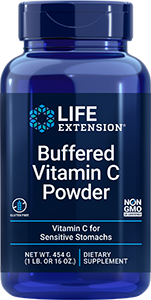- Science & Research
- Science News
- Newsletter
- 2012
- August 31

Newsletter
Newsletter
Vitamin B3 Offers Superbug Protection
Vitamin B3 offers superbug protection
Friday, August 31, 2012. The September, 2012 issue of The Journal of Clinical Investigation reported the discovery of Cedars-Sinai researchers of a protective effect for vitamin B3 against methicillin-resistant Staphylococcus aureus (MRSA), a type of staph infection that is resistant to antibiotic treatment. The finding is the result of research concerning a rare disorder known as neutrophil-specific granule deficiency, which involves a mutation in the gene CEBPE that regulates some of the body's antimicrobial factors. Afflicted individuals have weakened immune systems that render them vulnerable to infections such as staph. "Our goal in studying a rare disorder is that it may give us broad insight into the immune mechanisms that protect healthy individuals against staph infections," noted first author Pierre Kyme, PhD, who is a researcher at Cedars-Sinai's Division of Pediatric Infectious Diseases in the Maxine Dunitz Children's Health Center and the Immunobiology Research Institute. "We found that if you over-express the gene in normal individuals, the body's immune cells do a better job of fighting off infection." The team determined that a high dose of a form of vitamin B3 known as nicotinamide or niacinamide stimulates CEBPE, which enhances white blood cells' ability to combat staph infections. When the vitamin was tested in human blood, it boosted the immune system's staph-killing ability up to 1,000-fold in a matter of hours compared to treatment with saline. And in mice that received injections of 250 milligrams nicotinamide per kilogram body weight prior to staph infection, bacterial counts in the animals' spleens and kidneys were 100-fold lower after 48 hours compared with animals injected with saline. The researchers suggest that targeting CEBPE with other compounds than nicotinamide could also help treat staph infections. Senior coauthor and Cedars-Sinai professor of medicine Phillip Koeffler, MD remarked that "There's more research to be done, but we believe that vitamin B3, and other compounds that are able to increase the activity of this particular gene, have the potential to be effective against other antibiotic-resistant bacteria in addition to strains of staph." "It's critical that we find novel antimicrobial approaches to treat infection and not rely so heavily on antibiotics," stated pediatric infectious disease physician and coauthor George Liu, MD, PhD, of Cedars-Sinai's Maxine Dunitz Children's Health Center. "That's why this discovery is so exciting. Our research indicates this common vitamin is potentially effective in fighting off and protecting against one of today's most concerning public health threats." |
||||||||||||||||||||||||||||||||||||
 |
||||||||||||||||||||||||||||||||||||
|
||||||||||||||||||||||||||||||||||||
|
||||||||||||||||||||||||||||||||||||
 |
||||||||||||||||||||||||||||||||||||
|
||||||||||||||||||||||||||||||||||||
|
||||||||||||||||||||||||||||||||||||
The latest news on aging, nutrition, and vitamins
Lab
Testing
How Life Extension lab testing works









